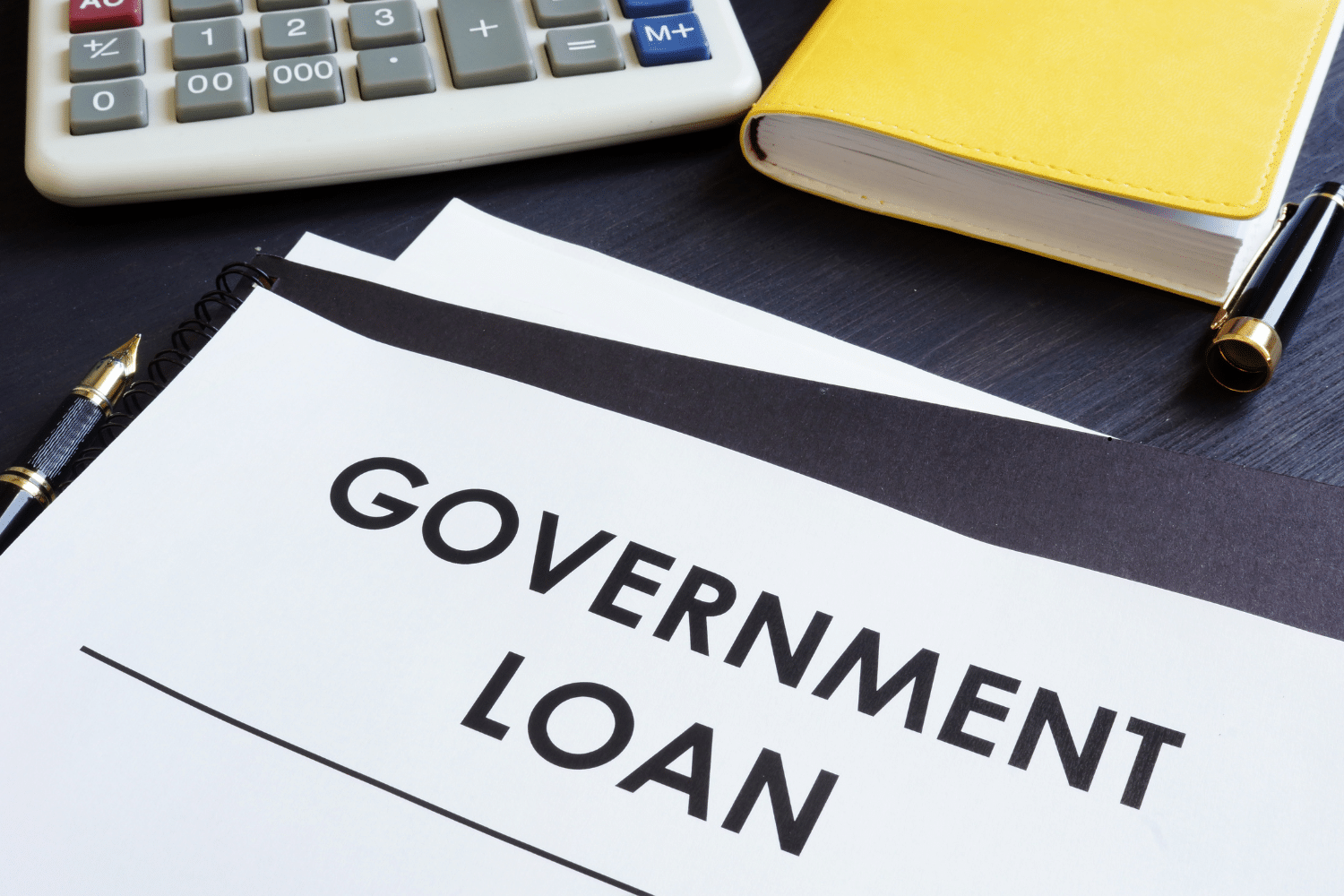Unclaimed money might sound like a distant concept, but it’s closer than you think and could affect your financial future. This article gives you straightforward facts about unclaimed money: what it is, where it comes from, and how you could reclaim funds you never knew were yours.
Key Takeaways
- Unclaimed money, such as inactive bank accounts and uncashed dividends, undergoes escheatment to state unclaimed property programs after a period of dormancy.
- Billions of dollars in unclaimed property are held by state governments and federal agencies, with active efforts to reunite these funds with the rightful owners using online databases and awareness campaigns.
- Individuals can search for and claim unclaimed money using official state programs, resources like NAUPA’s MissingMoney.com, and must remain vigilant against scams demanding fees for free government services.
Understanding Unclaimed Money and Its Origins

Unclaimed money refers to funds that have not been collected by their rightful owners. These funds can take various forms, including:
- Inactive bank accounts
- Uncashed dividends
- Insurance payments
- Stock holdings
Identifying the facts about unclaimed money lays the foundation for understanding its nature and scope.
After a dormancy period, typically five years, these assets undergo escheatment, a process that transfers these assets to state unclaimed property programs.
The Essence of Unclaimed Funds
Unclaimed funds consist of monetary or asset-based resources left uncollected by their due owners. This can include anything from:
- tax refunds
- pensions
- wages
- securities accounts
Each unclaimed fund has a story – an uncashed paycheck forgotten in a drawer, an insurance payout missed amid life’s turbulence, or a pension fund left behind in a career move.
These funds, waiting in the wings, represent opportunities for individuals to reclaim what’s rightfully theirs.
From Active Assets to Dormant Accounts
All unclaimed funds start as active assets. Over time, due to inactivity or lack of contact, these active assets transition into dormant accounts. The dormancy period varies from state to state and can range from one to five years. Once the dormancy period expires, these accounts are considered abandoned and are required by law to be turned over to the state as unclaimed property.
This transformation from active assets to unclaimed property is a pivotal process in understanding the facts about unclaimed money.
The Role of Financial Institutions
Unclaimed money cycles significantly involve financial institutions. They are not only custodians of these assets but also the entities responsible for declaring an account unclaimed. This declaration doesn’t come easy. Institutions are required to make diligent efforts, including database searches and written notifications, to locate account owners. When these efforts fail to reestablish contact with the owner, the unclaimed property is transferred to the state’s custody.
Thus, financial institutions act as gatekeepers, ensuring that every possible effort is made to prevent assets from becoming unclaimed.
The Scale of Unclaimed Property Nationwide

Unclaimed property is not a minor aspect of the financial landscape. It spans state governments and federal agencies, holding billions in unclaimed property potentially owed to individuals. State officials, like those in New York, California, and New Jersey, hold the lion’s share, with billions in unclaimed property.
But the reach of unclaimed money extends beyond these states, painting a compelling picture of the scale and scope of unclaimed property nationwide.
State Agencies and Their Treasure Troves
State governments play a significant role in managing unclaimed money. They hold substantial amounts of unclaimed property, with New York leading the pack with a staggering $18.4 billion. But these figures aren’t static. State governments actively engage in public awareness campaigns and utilize online databases to assist individuals in locating and claiming their unclaimed property.
So, while these figures seem daunting, they represent not just dormant assets but also potential windfalls for the rightful owner of other assets.
Federal Government’s Part in Unclaimed Funds
Extending the discussion beyond states, federal agencies also contribute significantly to the story of unclaimed funds. These agencies, including the fiscal service, assist individuals in determining the status of unclaimed federal funds, such as tax refunds. With resources like the IRS’s ‘Where’s My Refund’ portal or agency-specific links, the federal government provides necessary tools to track unclaimed funds.
So, if you’re owed money at the federal level, these resources can be your first stop in the journey to reclaim what’s yours.
How to Search for Unclaimed Money That Belongs to You

Having explored the concept of the facts about unclaimed money, it’s time for your personal exploration. How do you find out if there’s unclaimed money waiting for you? The search for unclaimed money can be navigated through a few key channels:
- Official state programs
- Resources provided by the National Association of Unclaimed Property Administrators (NAUPA)
- Staying vigilant against scams and unnecessary fees.
Let’s delve into each of these channels.
Utilizing Official State Programs
The first step in searching for unclaimed money should involve official state programs. These programs offer free searches for unclaimed property and can be accessed through an interactive map on NAUPA’s website. By entering the correct website address (look for URLs ending in .gov), you can avoid scams and bogus sites.
So, whether you’re searching for unclaimed money in New York or California, these official channels offer a safe and secure starting point.
National Association of Unclaimed Property Administrators (NAUPA) Resources
Beyond state programs, NAUPA offers resources that can aid in your search. MissingMoney.com, a free website sponsored by NAUPA, allows users to search across multiple state databases for unclaimed property. Once you locate potential unclaimed property, the site guides you to official government websites to initiate the claims process.
With such resources, including locator services, at your disposal, finding your unclaimed money could be just a few clicks away.
Avoiding Scams and Unnecessary Fees
Despite the excitement around searching for unclaimed money, it’s vital to be cautious and steer clear of scams. Scammers may pose as government employees and offer to help secure unclaimed funds for a fee. Remember, claiming unclaimed money from government agencies should be free, and you should avoid paying anyone to recover these funds.
Staying vigilant can save you from unnecessary fees and protect your personal information from falling into the wrong hands.
Claiming Your Unclaimed Property: The Process

Once you’ve located your unclaimed money, what follows? Claiming unclaimed property involves a few key steps – providing documentation, filing a claim, and understanding the resolution timeline. The process might seem complex, but with the right guidance, it can be navigated with ease. Let’s go through each step in detail.
Documentation and Verification Needs
Claiming your unclaimed property necessitates the provision of specific documentation. This includes identity proof such as a driver’s license or passport and proof of ownership such as pay stubs or utility bills associated with the property. Each state and property type may have specific documentation requirements.
So, whether you’re claiming a dormant bank account or an uncashed dividend, having the right documents and maintaining your own records on hand is the first step towards reclaiming your assets.
The Claim Filing Procedure
Have your documents ready to file your claim. Some states allow online filing, others need mailed forms. For claims over $1,000, notarization is a must, and you must mail them to the state’s address.
Remember, while there’s generally no deadline to claim unclaimed property, it’s best to claim it as soon as you discover it.
After the Claim: Understanding the Resolution Timeline
Upon filing your claim, comprehending the resolution timeline is key to managing your expectations. The timeline can range from as little as two weeks to over six months, depending on the state and complexity of the claim. Claims involving securities may require additional research time of 90 to 180 days. Regular follow-ups may be necessary to check on claim statuses and expedite resolution.
So, while the wait may seem long, rest assured that your claim is being processed and your unclaimed money is on its way to you.
The Impact of Unclaimed Money on Personal Finances

Retrieving unclaimed money can:
- considerably influence your personal financial standing
- provide a financial cushion during uncertain times
- help you achieve personal milestones
- be the key to paying off outstanding debts.
Let’s explore how unclaimed money can boost your financial position and the tax considerations you need to keep in mind when reclaiming funds.
Boosting Your Financial Position
Unclaimed money can notably enhance your financial position. It can be used to initiate or grow an emergency fund, a critical component of personal financial security. If you’re already financially stable, you could use the money to boost your personal financial growth by saving it in high-yield accounts or investing it.
Recovering unclaimed assets can also be a pivotal financial boost for those seeking to further their education or vocational skills, enhancing their future earnings potential.
Tax Considerations When Reclaiming Funds
Although unclaimed money can boost your finances, considering the tax implications during recovery is crucial. Unclaimed property already belongs to the individual and is generally not subject to tax as income when reclaimed. However, if the unclaimed property includes realized gains, such gains may be subject to taxation upon recovery.
It’s always a good idea to consult with a tax professional to understand the potential tax liabilities before claiming your unclaimed property.
Protecting Yourself and Your Assets
Despite the thrill of claiming unclaimed property, implementing measures to avoid your assets from becoming unclaimed is of equal importance. Regularly updating contact information, proactive monitoring of accounts, and effective estate planning and record keeping can help you stay on top of your financial assets and avoid the hassle of reclaiming money in the future.
Let’s delve into each of these measures.
Regularly Update Contact Information
Maintaining up-to-date contact information with financial institutions is a straightforward and effective way to avoid having your assets become unclaimed. This ensures you receive important notifications, including:
- security updates
- fraud alerts
- account statements
- notices regarding account changes or card upgrades
Regular updates can help you stay informed about your assets and prevent them from slipping into unclaimed status.
Proactive Monitoring of Accounts
Besides refreshing your contact details, actively monitoring your financial accounts can help prevent them from turning dormant and subsequently unclaimed. Here are some steps you can take to stay connected with your financial assets:
- Regularly respond to mail from institutions holding your money.
- Check your account activity on a regular basis.
- Use a single mailing location if you move or travel frequently.
By following these steps, you can help ensure that your financial accounts remain active and accessible.
Estate Planning and Record Keeping
Effective estate planning and meticulous record-keeping significantly help in preventing assets from being overlooked and thereby becoming unclaimed property. Some measures you can take to safeguard your assets from becoming unclaimed include:
- Maintaining accurate financial records for all assets
- Devising a digital estate plan
- Consulting with an estate planning attorney for regular review and update of estate inventories
By implementing these measures, you can ensure that your assets are protected and not left unclaimed.
Sharing estate inventories with trusted individuals and keeping personal property memoranda up to date are proactive measures to aid heirs in asset recovery.
Summary Of Facts About Unclaimed Money
As we conclude this exploration into the world of facts about unclaimed money, it’s clear that the journey to reclaiming what’s rightfully yours can be both intricate and rewarding. With billions in unclaimed property held by state governments and federal agencies, the opportunity to boost personal finances is significant.
By leveraging resources like official state programs and NAUPA, one can navigate the path to reclaiming unclaimed money. However, just as crucial as claiming unclaimed money is the need to implement measures to prevent assets from becoming unclaimed. Regularly updating contact information, proactive monitoring of accounts, and effective estate planning and record keeping are key to staying on top of your financial assets.
Frequently Asked Questions
The largest amount of unclaimed money is $11 million, part of the estate of reclusive Chicago resident Joseph Stancak.
It takes 60 to 90 days for the Texas Comptroller of Public Accounts to process original owner claims for unclaimed money, as long as no additional information is required.
It may take up to 12 weeks for your unclaimed money claim to be processed in Illinois, depending on the number of claims received by the office.
NJ holds unclaimed funds indefinitely, so there is no time limit for filing a claim. The state holds the funds until they are claimed by the owner or their representative.
Unclaimed money refers to funds that have not been collected by the rightful owner, and can include inactive bank accounts, uncashed dividends, insurance payments, and stock holdings.










